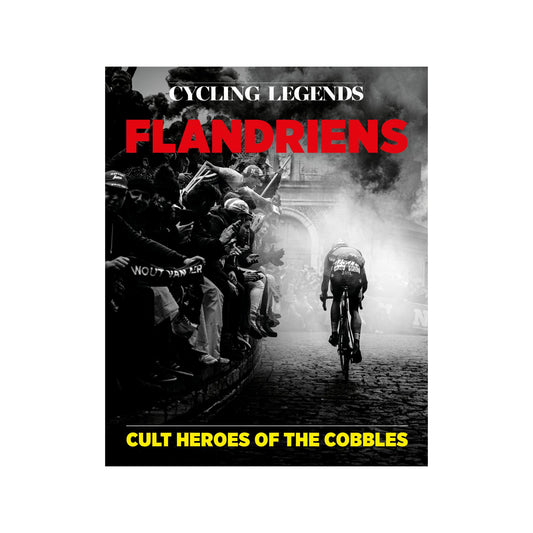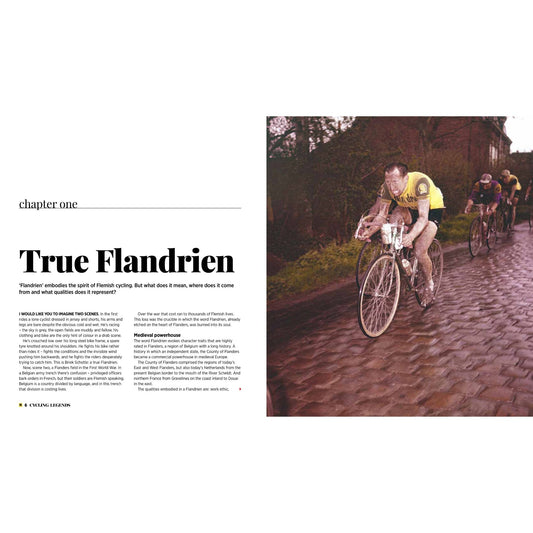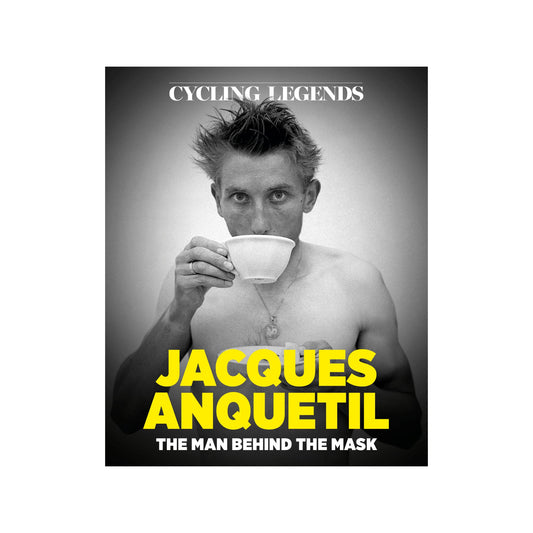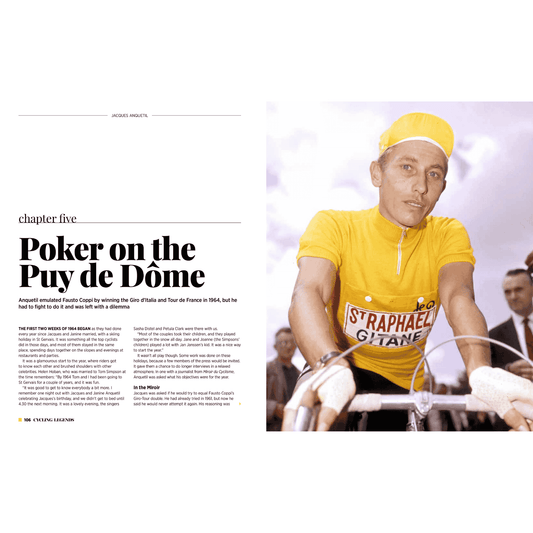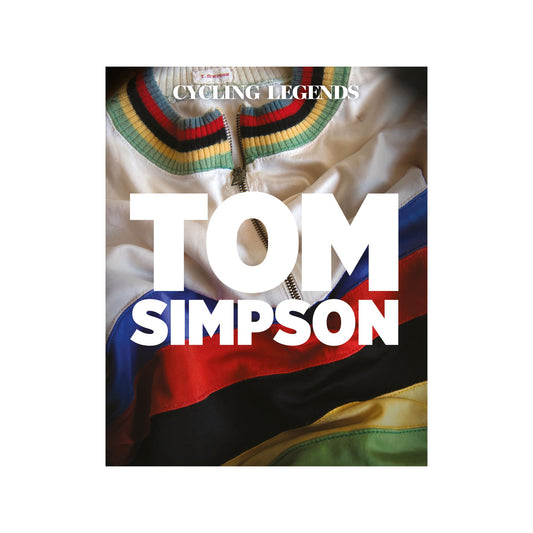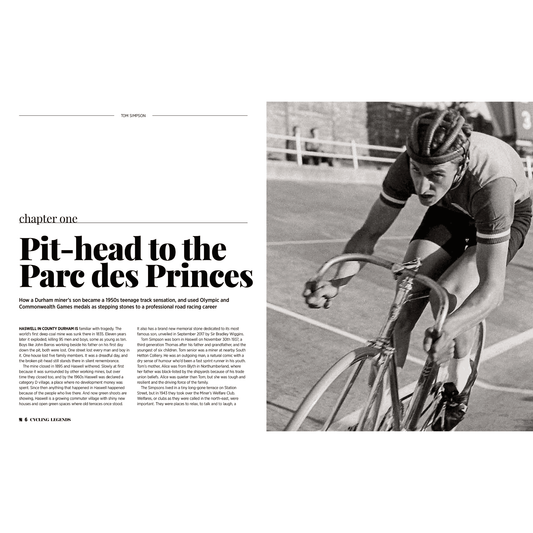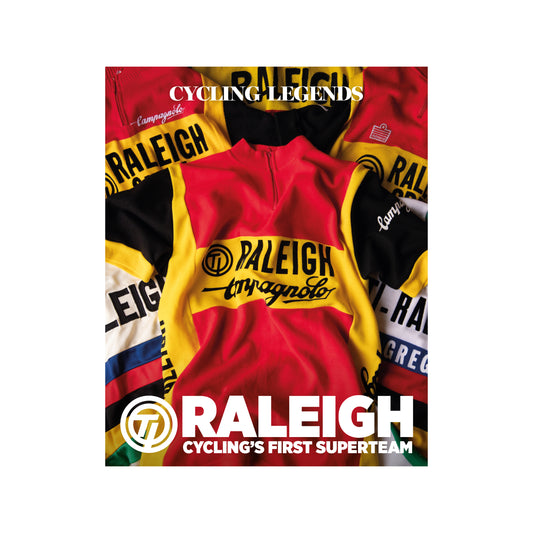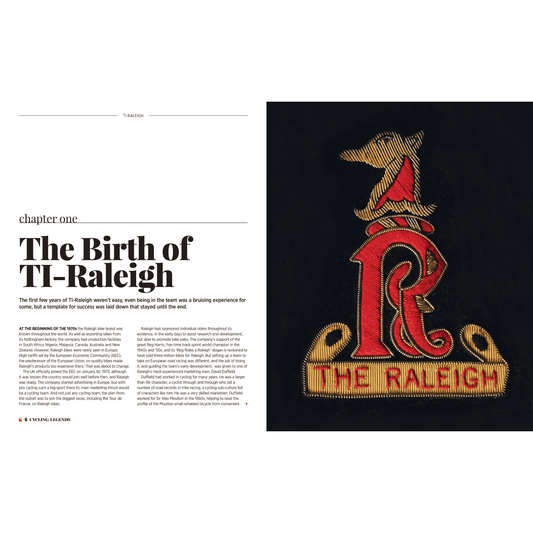The De Vlaemincks are Flemish cycling icons, cyclo-cross world champions, Roger once and Eric seven times. Roger won Paris-Roubaix four times, as well as every other monument.
Words by Chris Sidwells
Before Roger and Erik De Vlaeminck were there any better cycling brothers? There were some talented cycling siblings - the Pélissiers and the Planckaerts spring to mind, and there have been plenty since, but none had the breadth of talent the De Vlaemincks had. They could do almost anything, and they won a lot.
Roger De Vlaeminck has one of the best single-day race records ever, he won stages and jerseys in Grand Tours, and he was an amateur then professional cyclo-cross world champion.
His talent spectrum was road loaded, while Eric’s started at the opposite end.
He was one best cyclo-cross riders ever, winning seven pro world titles. He could get up there in the classics too, won some single-day and stage races, plus a stage in the Tour de France.

Erik, one of the greatest cyclo-cross riders of all time
From the late sixties and throughout the seventies the De Vlaemincks raced summer and winter, even finding time to shoehorn track appearances between cyclo-cross and road.
“I raced summer and winter right from the start,” Erik De Vlaeminck told me when I interviewed once for Cycle Sport magazine. Then revealed that he only took to the woods and fields by accident.
“I did my first cyclo-cross because the original Ghent Sportspaleis burned down early in the sixties. The original track went with it, and my track bike because we used to store them there ready for our twice weekly races.
“All I knew back then was racing, it was all I wanted to do, all I thought about, so I bought some cyclo-cross tyres, stuck them on my road bike wheels, and did a cyclo-cross. I did well too.”

Roger in his first Paris-Roubaix, a race he won four times
Cross winner
It wasn’t long before Erik started winning, first regional then national races, and two years after he started he won his first world title.
By then younger brother Roger had followed him. “I saw the fans and attention Erik got, and I saw the money he made too. I never liked school and I hated being an apprentice plumber, so I started racing in 1965, doing exactly what Erik did; racing on the road in summer and ‘cross in winter,” he told me.
Roger finished seventh to Briton’s Graham Webb in the 1967 amateur world road race championships, while still a teenager. Then the brothers were picked for the Belgian team in the 1968 cyclo-cross worlds in Luxembourg. Erik won the pro race and Roger won the amateur’s title.
After that the De Vlaemincks joined forces in the legendary Flandria pro team, and within weeks Roger won his first pro race. It was a big one too, the 1969 Het Volk, which is called Het Nieuwsblad now.
Flandria was a very special team, for a while all the finest Flemish riders were in it. Racing in blood red kit - the Rode Duivels (Red Devils) were also racing for regional pride. And money of course.
Cycling is popular in Flanders now, back then it was massive. Flemish pro kermesses had teams that never raced outside Flanders, and the riders in them were good. The international riders were fantastic.
Cycling mattered in Flanders back then, it formed part of the Flanders regional identity. To a lot of Flemish bike fans, who won the Tour of Flanders was a far more important than who won the Tour de France.
Flemish cyclists were Gods, and fans cared little for the greatest Belgian cyclist, Eddy Merckx.
Burning Merckx
When he raced Merckx was regarded by Flemish fans as having no regional identity. He was born in a Flemish-speaking part of Belgium, although not part of the old County of Flanders, a powerful political and trading entity in the Middle Ages, and crucial to Flemish identity.
Merckx grew up in a French-speaking suburb of Brussels, so he spoke both languages fluently and expressed a preference for neither. He married a French-speaking Belgian, and the couple said their marriage vows in French.
That was a crime to Flemish bike fans. They couldn’t say what Merckx was, but he sure as Hell wasn’t Flemish. Feelings ran so high that an effigy of him was burned at an early seventies pro kermesse in the De Vlaemincks’ home town of Eeklo.
Regional feelings ran deep in early seventies Belgium, and had done for years. This has dwindled somewhat today, but why were they felt so deeply then? Social injustice is part of the answer.

The Belgium that exists today was created in 1830 after the Belgian Revolution, a mix of Flemish and French speaking regions. But French became its ruling language, and that caused resentment in Flanders. Flemish children were often taught in French. Official documents were French, laws were passed in French, and during the Great War officers gave orders in French to Flemish troops, many of whom died as a result.
The outsider
Merckx didn’t even race for a Belgian team, the Italian lire had plummeted, so the exchange rate was good, and Italian sponsors had good profits to spend on cycling.
The situation was so attractive that Roger De Vlaeminck eventually did the same, but that was later. The 1969 cobbled classics saw a battle between Flandria and Eddy Merckx, and both De Vlaemincks were in the thick of it.
It was one team versus one man backed by a team, another subtle difference between Flandria and Merckx’s Faema then Molteni squads, as De Vlaeminck pointed out to me: “Flandria had some great riders, and it was a great start for me, but we backed each other. Whoever looked like winning, we rode for them. When I went to Italy, teams backed single riders in every race.
“I think, though, my time was a golden era for Belgian cycling. We had so many good, ambitious Belgians that when the national team manager used to ask before the pro worlds, who’s up for winning this year, everybody put their hand up.”

Erik winning another world cross title in Prague
Erik and Roger helped Flandria work Merckx over in the 1969 Paris-Roubaix, which was won by their team mate Walter Godefroot. Merckx was second and Roger finished fifth at the first attempt in the race he was to make his own. He went on to win Paris-Roubaix four times.
He loved the race, trained to peak for it every year, and the rivalry with Merckx ran so deep that Roger De Vlaeminck singles out the 1975 Paris-Roubaix, as well Il Lombardia in 1974, as his best ever victories.
“I beat Eddy Merckx when he was world champion in those races, so I beat the best when he was at his best. That meant so much to me then,” he said.
Erik’s decline
The winter of 1970 saw Erik and Roger line up for Belgium in the world cyclo-cross championships on home soil in Zolder, where they gave a master-class.
After a short road section to start the De Vlaemincks bounded up the first sandy slope, taking team mate Albert Van Damme and German cyclocross ace Rolf Wolfsohl with them.
And that was it, the four were never seen again. Roger made a rookie mistake when he attacked too early on the last lap and was dropped, but the attack tired out Wolfsohl who had to chase him, so Erik and Van Damme blew past him, and Erik won the sprint.
He was an incredible ‘cross racer. Erik De Vlaeminck was fast enough for the fastest courses, but when the going was rough it didn’t seem to slow him down. He was strong and agile, rode where most ran, but could run like the wind when he had to.
But racing and training summer and winter, plus the notoriety for the fast lifestyle he led eventually got to him, and Erik began getting a little bit flakey.
He won world titles in Apeldoorn in 1971, Prague in 1972, but stories filtered out of Belgium that Erik was wild. His lifestyle, even the way he dressed, was certainly flamboyant, but something started to affect his racing.
He wasn’t the favourite when the world cyclo-cross championships came to Crystal Palace in London in 1973, but De Vlaeminck still won, doing six laps on fitness and four on pure class.
His build up to the ‘73 championships saw more column inches devoted to what he’d done off the bike than on it. Erik De Vlaeminck was becoming the wild child of Belgian cycling, rather like Frank Vandenbroucke would be years later.
London was Erik’s last world title, and although he got himself together enough to take a third place in 1977, he was never the same again.

Erik in his Belgian cyclo-cross coaching days
He was good as the Belgian national coach for cyclo-cross for a while, getting good results from his riders, but couldn’t deal with cycling federation politics and he left the job. Not entirely willingly, and he could be a vociferous critic of those who replaced him.
Great loss
Erik suffered a great loss in 1993 when his son, Geert died while competing in a cyclo-cross Erik was watching. After that his health slowly deteriorated, and he ended up in a struggle with Parkinson’s disease. Erik De Vlaeminck died in 2015 at the age of 70.

Roger loved racing cyclo-cross, and still cycles cross-country
Roger, who is 77 now, reduced his cyclo-cross activities after 1975 for the sake of his road ambitions. He eventually won all five monuments, adding three victories in Milan-San Remo to his four in Paris-Roubaix.
However, he still says his first love was cyclo-cross. “I kept riding cyclo-cross after my road career was over, and I was 40 when I stopped. I love the atmosphere at a cyclo-cross race, and I love being out in the countryside riding through it. For a while I even had a cyclo-cross lap on my farm,” he told me.
I wonder if, when he was out there riding it, he thought about his brother and when they were Red Devils together in the Flandria team dishing it out to Eddy Merckx. I bet he did, and I bet it brought a smile to his face as well as a flood of memories.

Roger in 2018 with Lotte Kopecky
